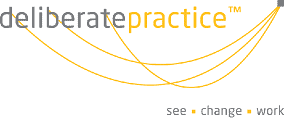Psychometric assessments are fairly commonplace these days, as it’s generally accepted that they are a valuable contributor to making accurate and objective hiring decisions. Moreover they can provide useful insights into how to best manage a new hire and ensure optimal performance. They are also commonly used for development, to build self-awareness to augment critical activities such as career planning or leadership growth.
Interestingly, a growing trend is towards greater use of cognitive or abilities testing for entry level, blue collar, or junior roles, particularly for volume recruitment. When applied correctly, these assessments are a valuable contributor to the selection process. Combined with interviewing and other traditional selection processes, they can reveal comparative abilities in the candidate pool that are otherwise unknown or assumed, such as technical accuracy, numeracy or mechanical aptitude. This additional information adds another important, objective dimension to the hiring process.
Assessments can be particularly helpful with volume recruitment (for screening), internal recruitment (for objectivity), or when there have been previous issues such as high turnover, low performance, poor productivity or safety issues. Below is a selection of some of the abilities assessments you could apply to your selection processes:
- Ability to check and apply instructions with speed and accuracy
- Microsoft office
- Safety orientation
- Ability to understand how to apply weights, pulleys or levers to achieve the desired result
- Ability to use multiple systems
- Ability to interpret written information and identify key issues
- Problem solving
- Customer service orientation
- General numeracy
- General cognitive ability
Understandably, there’s still a lot of hesitation about which assessment is the right fit for purpose, so how do you know where to start? Below is a quick guide to the types of questions you should be asking yourself:
- Know exactly what you want to assess – one test is not going to tell you everything, so be specific about what you’re looking for
- What skills, abilities or styles do you need to know about that will bring greater fit for success in the role?
- What can’t be identified with certainty through interviews or other methods?
- What would be helpful to compare between otherwise equal candidates?
- Do you want to use the assessment as a screening tool, selection tool, or for development?
Implementing a successful assessment process comes down to a few key points:
Assess against appropriate, accurate and current role dimensions (be clear about the role requirements first)
- Brief your assessment partner with clear and thorough details about the role, your business and what you’re wanting to achieve from the assessment (so that the right assessment and comparative norm group is selected)
- Ensure your assessment partner understands the importance of excellent candidate care – they will be representing your organisation and brand
Finally, assessments should always be utilised to complement and enhance your recruitment activities, not to replace them.
For more information about assessment, contact info@deliberatepractice.com.au or 1300 335 423



